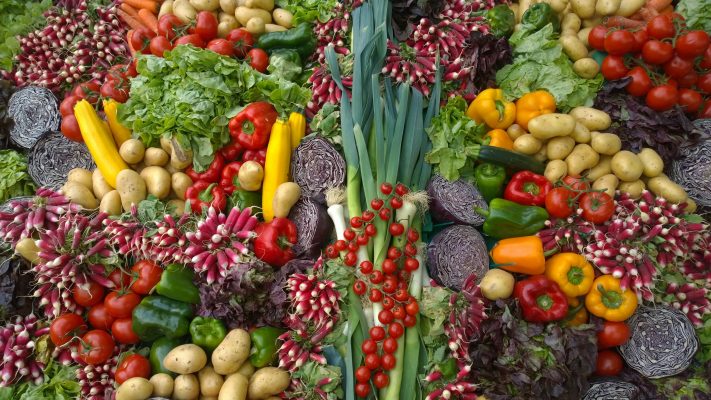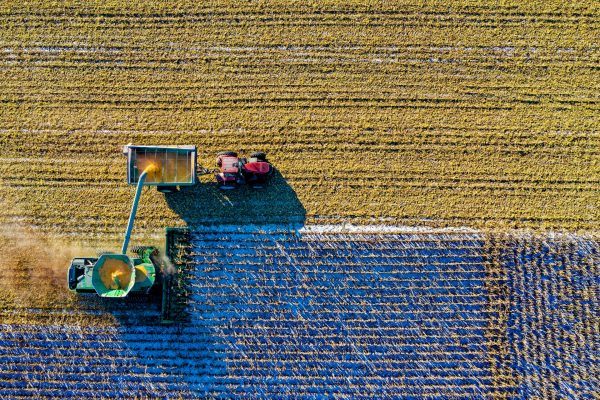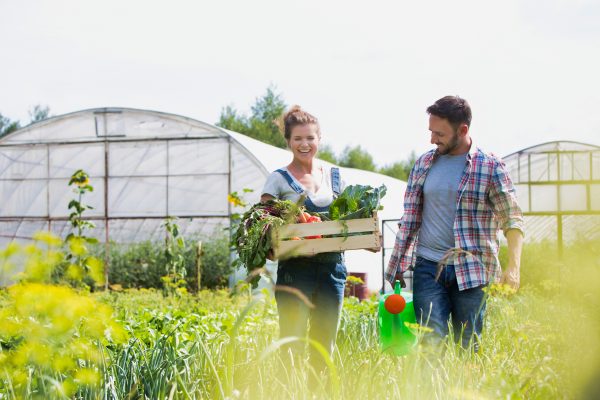Buy Local shoppers in Nova Scotia got some exciting news recently. Now we can more easily support local food providers with the “Taste of Nova Scotia” stickers or “Get Your Hands on Local” signage in many of the larger grocery stores! We’re all about supporting small and local. So it’s awesome to see Taste of Nova Scotia helping some of the larger grocery stores do the same!
Why is Supporting Local Food Providers Such a Big Deal?

Well, for one, it speaks to the growing demand of Nova Scotians who want access to local food providers. This shows that the buy-local movement is growing beyond farmer’s markets. And this is good news for local food providers, communities, and the planet.
Here’s why.
In addition to helping small local food producers, buy-local initiatives help communities grow and maintain a sustainable local food system. Sustainable is defined as “…the property of biological systems to remain diverse and productive indefinitely.”
Now that sounds pretty good to me! Imagine a world where every community has a steady, consistent, and self-sustaining source of local food. This would mean that the small local farmers could produce enough food to sustain our main food needs. It would flip the current food model to getting our staple food items from local sources, and only treats and extras supplemented from abroad.
Why is Imported Food so Cheap?
I know that local produce is often more expensive than imported foods. But this is not because local foods have artificially inflated prices. It’s because imported foods are artificially cheap. Why is this? You can check out the many reasons here in this ASPCA article.

These discounted prices come at a huge cost to the environment. And not just from the copious carbon emissions from transporting foods from around the globe.
Other environmental costs of factory farming include chemical pesticides and fertilizers. These toxins leach into local water supplies and contaminate the very foods we’re buying at such discounted prices. You can read more about the unsustainable and toxic effects of factory farming in The Guardian’s interview with Philip Lymbery here.
Now, I know that not all locally owned farms will also be environmentally friendly. Given the current food industry practices, these standards are difficult to attain because they are costly. And it’s still mostly industrial farm practices that are subsidized by governments. However, it’s a step in the right direction to at least choose from a local food provider to reduce our carbon footprint and promote a more reliable local food supply. And those are two real benefits to our local economy.
How Supporting Local Food Providers Helps Farmers, Locals, and the Planet!

What are the Benefits of Choosing Local Food Providers over Imported Food Options?
- Increased local food purchases mean local farmers get more money to put into increased food production
- Increased local food production = lower prices over time for consumers
- A global shift to prioritizing sustainable local food systems reduces the devastating environmental impact of transporting food from around the globe
So, it’s clear that supporting local food providers is another one of those win-win-win scenarios, just like we outline in our explainer video. Local food providers, community members, and the planet win when we can build robust local food systems.
Oh yeah! Make sure to check out our related food sustainability blog, Tackling Food Waste in Nova Scotia, for even more ways to affordably access local produce. And, if you’re looking for ways to make more sustainable clothing purchases, check out our Fast Fashion Fast blog.
Happy Sustainable Shopping Y’All. Would love to hear your sustainable shopping tips too so please do post them in the comments 🙂

Thank you for providing a platform to help local business!
Thanks so much for your kind affirmations, Sue! It’s a genuine pleasure 🙂